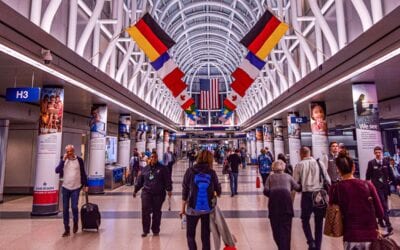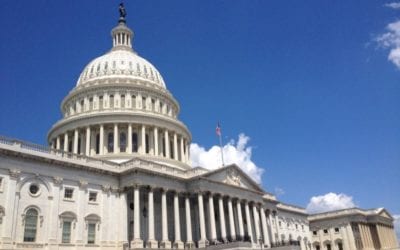
Opening statement of Charlie Leocha, consumer representative to the Advisory Consumer for Aviation Consumer Protections.
DOT, Washington, DC, October 2, 2012
As we start this, the third meeting of the Advisory Committee for Aviation Consumer Protections, I am heartened at the heightened awareness of consumer protections within the Department of Transportation. For the first time consumer advocates and DOT officials are meeting together constructively to explore areas where consumer rights can be improved, not only by changing rules and regulations or by proposing new laws; but, by improving administrative processes and communications with consumers.
Many of our discussions today, about defining terms used in contracts of carriage, complaint-handling changes, modifications to proposed rulemakings and enforcement issues would not have been possible in the past. There simply was no forum for such a back and forth conversation on consumer issues.
The committee has also spent almost half of our time on another issue that has been looming over the aviation community for the past half-decade, ancillary fee price transparency.
For years it has been almost a given that passengers would complain about airline service — food was bad, don’t even serve peanuts, seats don’t recline, seats are too tight, not enough carry-on luggage space — we’ve all heard them, and probably complained under our breath as well. But, now the airlines are succeeding in making the ticket purchasing process a minefield of consumer complaints as well.
Airline passenger liberation and booking joy was discovered with the advent of Internet travel booking sites, just over a decade ago. All of a sudden the common consumer could book an airline ticket right from his desktop computer. I spent years reporting on the phenomenon. Expedia and Travelocity led the way. Then Priceline set up their bidding site and eventually, the airlines got into the act through their creation of Orbitz.
Conventional wisdom held that travel agents were a thing of the past. Everything could be done directly. The airlines eliminated travel agent commissions, not so much to save money, but because they were dinosaurs, a relic of the past. Disintermediation was the word of the period.
At the same time, the aviation network exploded. More passengers were flying to more places that ever before. There was hardly a complaint heard from consumers except, perhaps, I could have gotten a better deal.
Not so any more. Today newspapers, blogs and magazines are filled with articles and comments where passengers are decrying airline fees, dissing the airline distribution system that once was one of the free-market wonders of the world.
With the advent of airfare unbundling, passengers are confused. After almost half a decade of ancillary fees kicked off by American Airlines with its first checked bag fees, you would think that the word that there are extra fees beyond airfares would have gotten out. But, with so many extra fees, consumers are getting a bit punch-drunk. A recent poll conducted by Harris Polls found that more than half of consumers are still being surprised by fees when they get to the airports.
Disintermediation didn’t work out the way most industry pundits thought. As airlines added fees and complexity to purchasing tickets, travel agents have been making a comeback — working to help consumers understand the new airline marketplace with fees added to each of the purchase points.
Even the airlines’ biggest customers are unhappy. Besides leisure passengers, corporate travel managers are grousing about the impossibility of getting up-to-date ancillary fee information so that they can properly budget, pay for, reimburse and track ancillary fees through their corporate accounting systems.
Hopefully, the committee will agree, it is time to let consumers, both leisure and business, know the full price of travel and allow them to purchase it wherever airlines choose to sell their tickets.
The discussions at our last meeting made several things abundantly clear.
-
• Airlines want to present consumers with competitive services, provide choices and disclose the total cost of travel before ticket purchase. Consumers, travel agents and corporate travel managers agree.
• The information airlines believe they are disseminating about
ancillary fees is not reaching consumers, travel agents or corporate travel managers.
• Airlines are looking forward taking advantage of the their entire distribution system to sell their entire product line.
• Technology from both the airlines and GDSs exists to provide passengers these variations on airfares plus fees and allow purchase.
• IATA will soon reveal a mark-up IT language that will simplify this process.
It is time that the airline industry mover forward and put their money where their mouth is, so to speak. Airlines need to provide dynamic pricing for the ancillary fees they claim they need to make a profit and provide better choices for consumers; and GDSs and supported travel agents need to step up to the plate with state of the art IT programs that will serve consumers and allow for choice and comparison shopping.
As we move forward with this these discussions, I hope that other consumer groups — National Consumers League, ACAP, AirlinePassengers.org and Consumers Union — represented here in the audience can be made a part of the discourse as well as the season voices of the airlines, travel agents, GDSs, corporate travel managers and others who have chosen to be part of this historic committee meeting.

Charlie Leocha is the President of Travelers United. He has been working in Washington, DC, for the past 14 years with Congress, the Department of Transportation, and industry stakeholders on travel issues. He was the first consumer representative to the Advisory Committee for Aviation Consumer Protections appointed by the Secretary of Transportation from 2012 through 2018.



